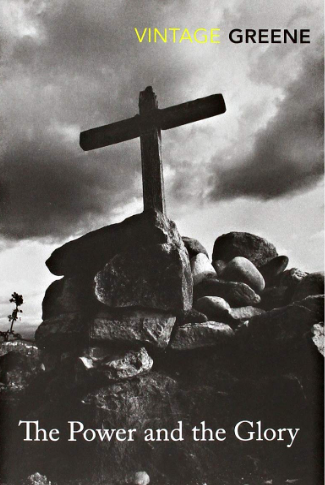Posted: July 16, 2023
The Power and the Glory

Behind the darkness and the grief a priest upholds his faith.
The Power and the Glory is about a brave man who thinks he's a coward. It's about a dutiful man who thinks he has betrayed his duty.
The priest at the center of this story is never named. He is shown being hunted by a government who has outlawed Roman Catholicism. The other priests in the area have fled, been killed, or have capitulated by marrying. But not this priest - this "whisky priest". He is the last defiant soldier of his faith. He is not very happy with himself because he has given in to certain weaknesses such as alcoholism - and other violations.
He may have a low opinion of himself but the story upholds him by bringing up the example of Father Jose, who has been cowed into submission by the Governor as well as other priests who have simply fled.
Greene also uses a brilliant element by introducing into the story the idealized tale of a young martyr. This story within a story shows a perfect martyr thinking perfect thoughts and doing perfect actions until his death. Contrast this "fairy tale" with the reality of the whisky priest, and his half a decade struggle for his faith.
This struggle consigns the priest into a perpetual state of hiding, all the while trying to fulfill the duties of a priest. It mires him in the direst poverty while he's at it. The book has a harrowing description of a night spent in a jail. It also describes starvation so keen that some meat taken from a dog tastes like a feast.
The details of the towns, forests, and mountains of this story set in Mexico is a big part of the appeal of this book. There is only one thing that I am wondering about: that is the reference to "detonating" beetles. Insects that explode? Is this real?
I also thought that the premise of a government outlawing Roman Catholicism was pure fiction. It turns out it isn't. This situation actually happened in a part of Mexico during the early twentieth century.
"The Power and the Glory", on the face of it, seems to be a bleak, even tragic tale. But it really isn't. I think it is celebratory. It celebrates the heroism of the everyman, the common folk, men and women who quietly live their lives and are true to themselves and their vocations even during hard times. Just like the whisky priest, these men and women may falter, fail, give up during certain points, feel fear and rebuke themselves. But this book gives the message that life is messy, unfair, and scary, and heroes need not be perfect.
The book also shows that in the darkest moments there are times of peace, and, more than that, joy. Joy in the darkness.
This is regarded as one of the best books of the twentieth century, and now I know why.